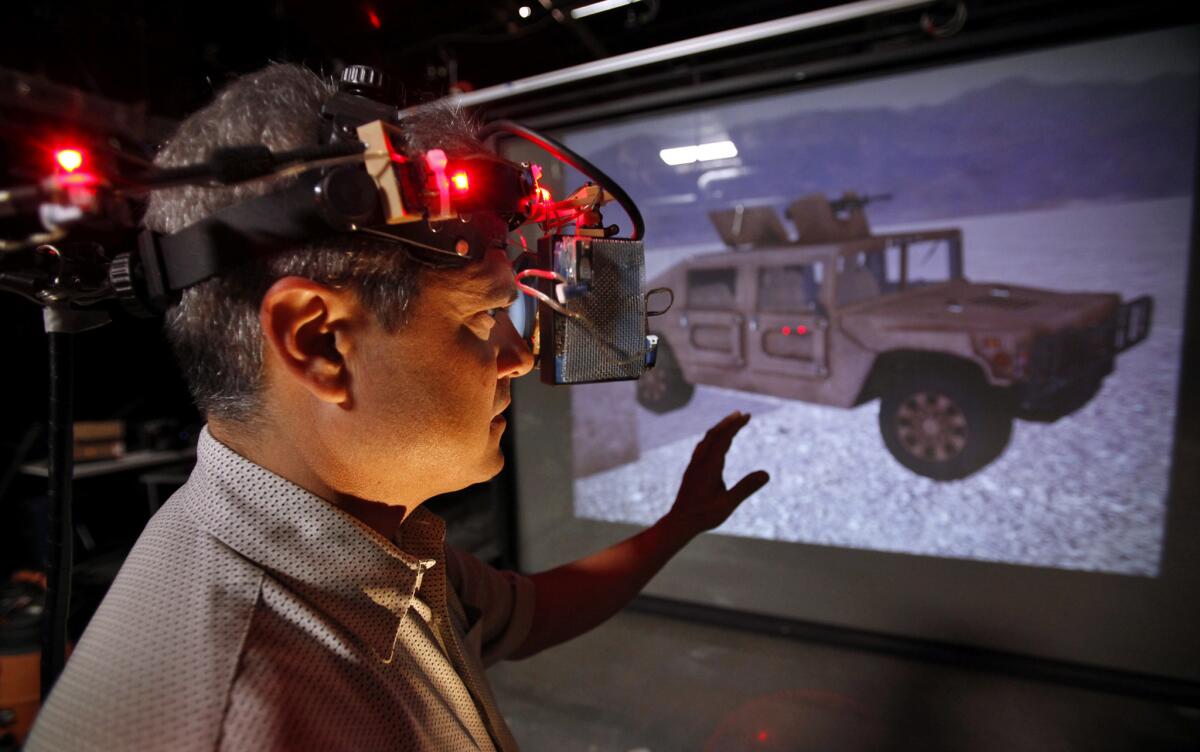Army to station up to 70 researchers at USC’s Institute for Creative Technologies

Mark Bolas, director of the Mixed Reality Lab at USC’s Institute for Creative Technologies, reaches out while wearing a virtual reality headset at a university building in Playa Vista.
- Share via
U.S. Army researchers are moving into Los Angeles’ sprouting technology hub in Playa Vista, aiming to make what will become their largest outpost outside Maryland into a key source of ideas on data analysis, robotics and virtual reality.
The U.S. Army Research Laboratory office will be at USC’s Institute for Creative Technologies, which the Army kickstarted with funding at the height of the dot-com boom. Now, the Army group will maintain up to 70 researchers there starting next year, it announced Tuesday.
Under new Defense Secretary Ashton Carter, the Pentagon has sought a deeper relationship with the technology industry in hopes of harnessing new technology faster. Earlier this year, Carter announced the opening of an innovation center in Silicon Valley and a $75-million investment into a consortium of 100 companies working on wearable electronics.
But to combat tight budgets, the military also is looking to collaborate differently with colleges and universities. The USC deal is part of an Army initiative launched last year known as Open Campus, which provides academic researchers access to unclassified information and unique problems. But rather than provide funding upfront, the Army is looking to jointly develop technology and potentially pay for it afterward.
USC was a natural spot for the Army group to land in Southern California. ICT’s work with the military and Hollywood already has had a role in big developments, including stress therapy and disaster response apps, graphics technology used in the film “Avatar” and the recent reemergence of virtual reality headsets.
ICT is near offices for Microsoft, Yahoo, Belkin and YouTube, and a forthcoming Google space.
“We believe that establishing West Coast research teams at USC and ICT will lead to new research directions, new perspectives, new industry partners and ultimately new discoveries that will help the Army solve current and future challenges,” Army Research Lab Director Thomas Russell said in a prepared statement.
Army researchers focused on data analysis are already looking into helping soldiers retain information more efficiently and developing robots that don’t get bogged down on complex computational tasks on the battlefield.
Chat with me on Twitter @peard33







